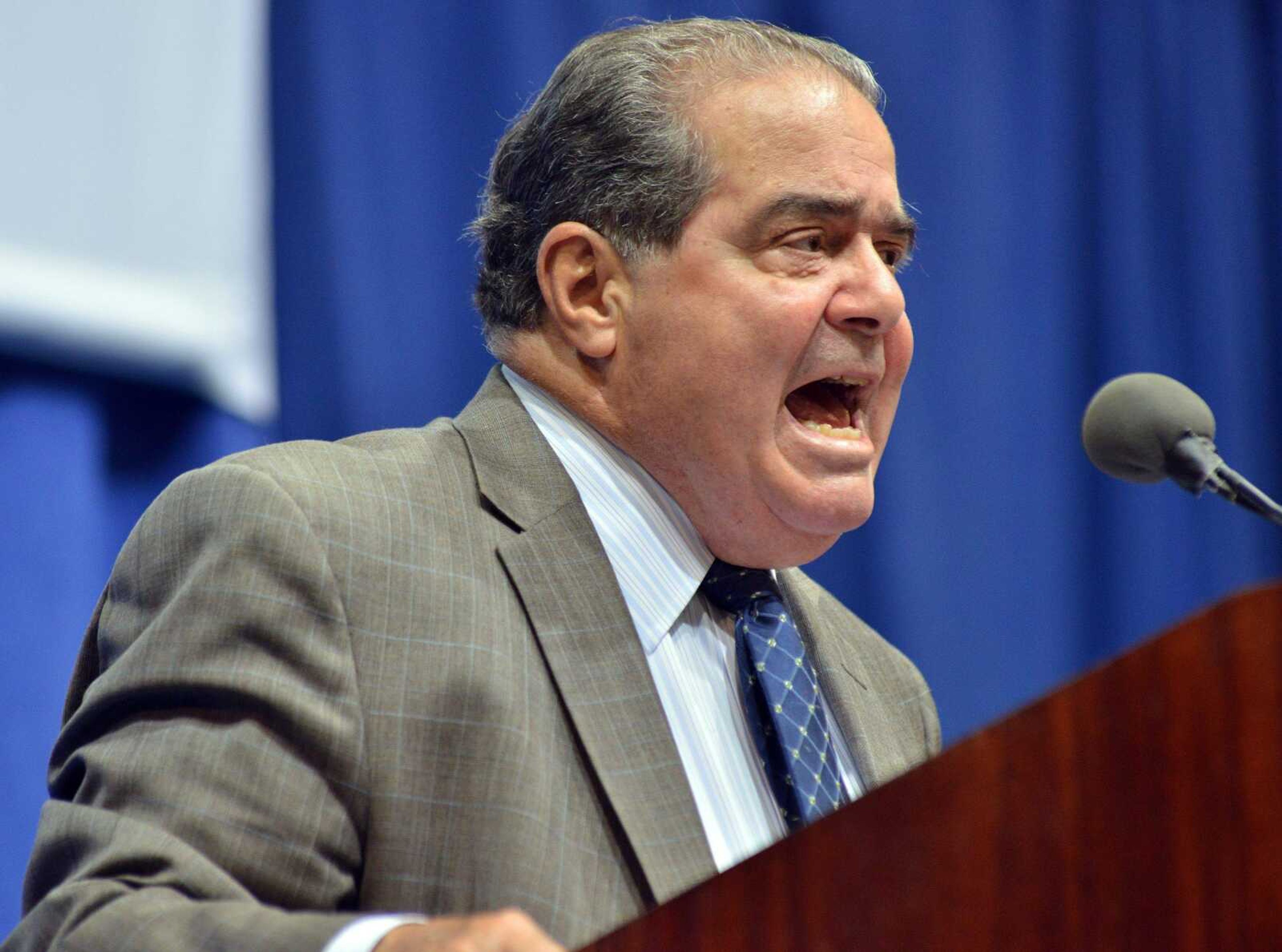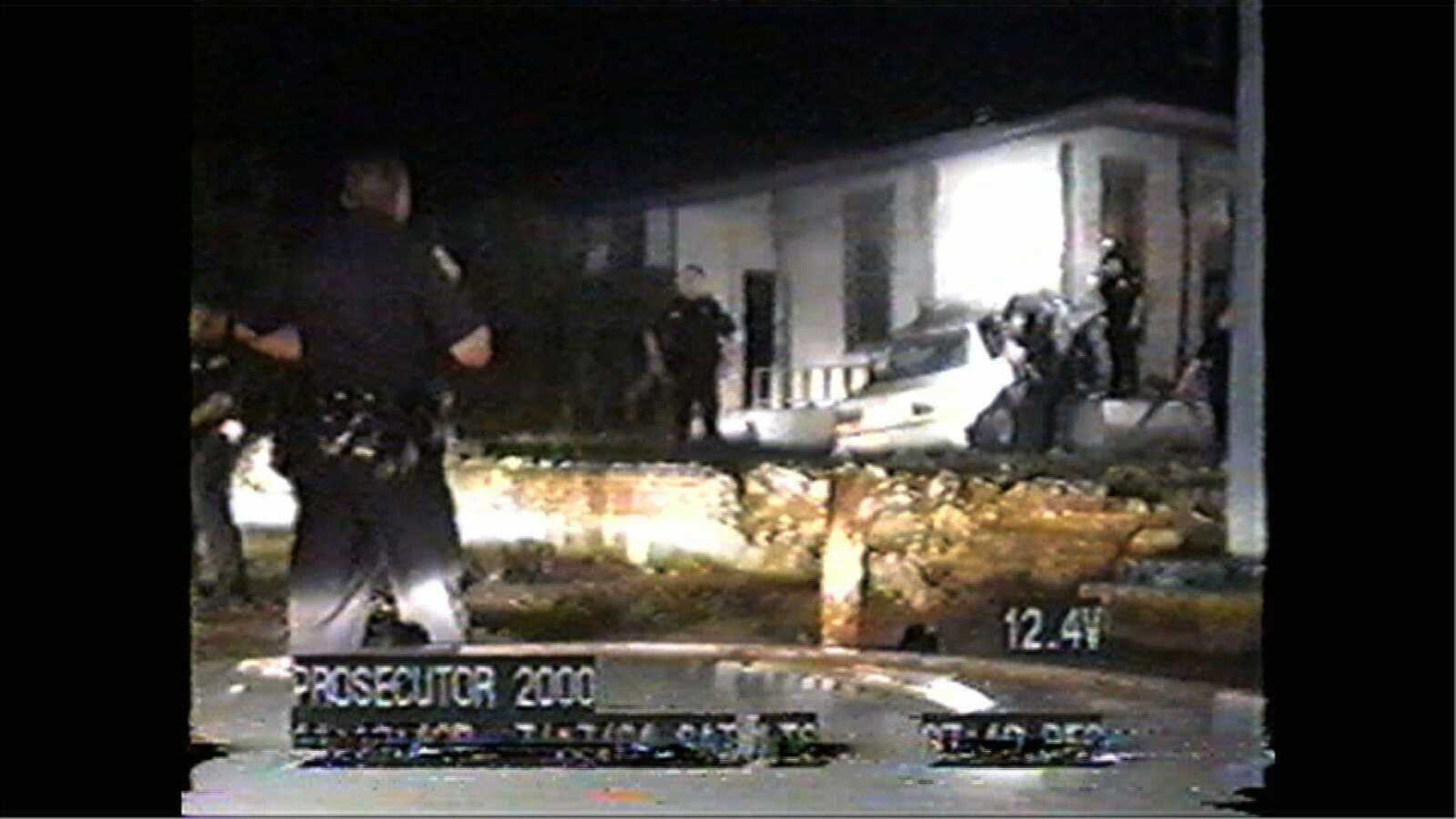High court signals it favors police
WASHINGTON -- Aided by video captured by dashboard cameras in police cruisers, Supreme Court justices Tuesday seemed poised to rule for police officers involved in a high-speed chase that ended with the deaths of the fleeing driver and his passenger...
WASHINGTON -- Aided by video captured by dashboard cameras in police cruisers, Supreme Court justices Tuesday seemed poised to rule for police officers involved in a high-speed chase that ended with the deaths of the fleeing driver and his passenger.
No one on the court appeared willing to affirm an appeals court ruling allowing a civil lawsuit by the driver's daughter to proceed against six West Memphis, Ark., police officers.
They fatally shot driver Donald Rickard and passenger Kelly Allen in 2004 on a Memphis street after a chase that began across the Mississippi River in Arkansas. A police officer pulled over Rickard's white Honda because a headlight was out. Rickard sped away when the officer asked him to get out of the car.
The lawsuit says police used excessive force. But several justices said the officers may not have done anything wrong or at least should be shielded from liability.
The justices don't often question the facts that underlie the lower court rulings that are at issue before them.

But for the second time in recent years, police video of a car chase seemed to make at least some justices more willing to do their own fact-finding. Police fired 15 shots into Rickard's car, of which 12 came after Rickard managed to begin driving away from officers who had surrounded the vehicle.
"I mean, when I look at the film, I thought well, sure, he's going back to the highway. You say we want to show that the policeman knew he wasn't. I didn't see any evidence showing that," Justice Stephen Breyer told Gary Smith, the lawyer for Rickard's daughter.
The video involved in the case was not shown in the courtroom Tuesday, but justices had seen it as part of filings with the court.
In 2007, the court voted in a case from Georgia that police may use tactics that put fleeing suspects at risk of death to end high-speed car chases. In that case, Justice Antonin Scalia chastised an appeals court panel for its ruling in favor of the driver, who was paralyzed after police bumped his car and forced it off the road. The driver's "version of events is so utterly discredited by the record that no reasonable jury could have believed him. The Court of Appeals should not have relied on such visible fiction; it should have viewed the facts in the light depicted by the videotape," Scalia said.
On that court, only Justice John Paul Stevens said he wasn't frightened by the chase and would have sided with the driver.
Scalia left no doubt on his view of Rickard's actions.
"This guy has been driving on the highway at 100 miles an hour, swerving into and away from police cars," Scalia said.
Even when surrounded, Scalia said, "The car is still trying to escape. The car is not stopped and, you know, the driver with his hands up. The car is still trying to get out of this encirclement by the other police cars, right?"
Smith tried to answer: "That..."
Scalia continued, "Is he trying to get away at that point or not?"
Smith said it's not clear from the video.
Justice Anthony Kennedy chimed in, "What do you mean? He is going to the police station?"
Smith replied, "Well, we don't know. He wasn't given the opportunity."
Earlier in the argument, Kennedy raised one question about the police response that appeared to trouble other justices as well.
"What effect, if any, do you give to the fact that there was a passenger in the car, a passenger who apparently was not involved in any illegal activity?" Kennedy asked Michael Mosley, the lawyer for the police.
"The passenger did not make Mr. Rickard less dangerous," Mosley said,
True, Kennedy said, "but it makes the police reaction more dangerous."
The court could resolve the case by deciding the officers did not violate Rickard's rights, or they could say that the law involving police chase and use of lethal force was not clear at the time of the incident, meaning the officers could not be held liable for their actions.
A decision in Plumhoff v. Rickard, 12-1117, is expected by late June.
------
Follow Mark Sherman on Twitter: https://twitter.com/shermancourt
Connect with the Southeast Missourian Newsroom:
For corrections to this story or other insights for the editor, click here. To submit a letter to the editor, click here. To learn about the Southeast Missourian’s AI Policy, click here.










